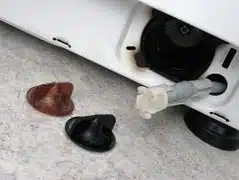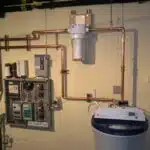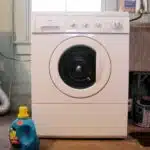Washing machines are a vital appliance in any household, serving the purpose of cleaning clothes and linens with ease. However, like any other electronic device, washing machines have a limited lifespan, and their longevity depends on several factors. As a home appliance expert, it is essential to understand these factors and educate customers about how long they can expect their washing machine to last.
Several factors determine the lifespan of a washing machine, including the frequency of use, maintenance practices, quality of materials used during manufacture, and technological advancements. While some washing machines may last up to 15 years or more with proper care and maintenance, others may only last for five years before requiring replacement. In this article, we will explore the various elements that affect the lifespan of a washing machine in detail and provide insights into how homeowners can extend their device’s longevity.
The Importance Of Understanding Washing Machine Lifespan
Washing machines are an essential appliance in most households, and understanding their lifespan is crucial for homeowners. Whether it’s due to constant use or wear and tear over time, washing machines can break down and require maintenance. Knowing when to repair or replace a washing machine is important for financial reasons.
When weighing the cost analysis of a washing machine’s lifespan, it’s important to consider the cost of repairs compared to the price of a new machine. While some repairs may seem minor at first glance, they can add up over time. Additionally, newer models may be more energy-efficient and have advanced features that can save homeowners money on utility bills.
It’s also essential to understand the average lifespan of a washing machine to determine when replacement is necessary. According to experts, the average lifespan of a washing machine is between 10-14 years. However, this can vary depending on frequency of use and maintenance practices. By understanding these factors, homeowners can make informed decisions about when to repair or replace their washing machines.
Understanding how frequently you use your washing machine and its impact on its lifespan is critical for maintaining the appliance.
Frequency Of Use And Its Impact On Lifespan
As we have discussed in the previous section, understanding the lifespan of a washing machine is crucial in maximizing its usage. However, it is not enough to know how long it can last. We must also consider the impact of frequency of use on its lifespan. We can compare a washing machine to a car that runs constantly without rest, which can lead to wear and tear.
One factor that affects the lifespan of a washing machine is water hardness. Hard water contains minerals that can accumulate in the machine over time, causing damage to its internal components. This can lead to frequent repairs or replacements, shortening its lifespan. To avoid this, it is essential to check your water source for hardness and invest in a water softener if necessary.
Another factor that impacts the lifespan of a washing machine is the type of detergent used. Some detergents can be harsh and abrasive, causing damage to the drum and other parts of the machine over time. It is recommended to use high-quality detergents designed specifically for washing machines with low-sudsing formulas.
Proper maintenance practices are also essential in prolonging the life of your washing machine. Regular cleaning of filters and drain pipes can prevent blockages and keep your machine running smoothly. Additionally, avoiding overloading your washer and using appropriate wash cycles can minimize wear and tear on its components.
In summary, frequency of use plays a significant role in determining how long a washing machine lasts. Water hardness and detergent type are also factors that should be considered when trying to maximize its usage. Proper maintenance practices such as regular cleaning and avoiding overloading are crucial steps in ensuring that your washing machine lasts as long as possible.
Proper Maintenance Practices
Preventive maintenance is essential for prolonging the lifespan of your washing machine. Regularly cleaning the lint filter, checking and tightening the water hose connections, and cleaning the detergent dispenser are some of the preventive measures you can take. Additionally, it is important to ensure that your washing machine is installed on a level surface to prevent damage caused by vibration.
In case your washing machine encounters any issues, it’s always best to troubleshoot before calling in a professional. Most problems can be easily resolved without needing to spend money on repairs. For example, if your washing machine is making loud noises during the spin cycle, it could be due to an unbalanced load or something stuck in the drum. Simply redistributing the clothes or removing any foreign objects can fix this issue.
These preventive maintenance practices and troubleshooting tips can go a long way in ensuring that your washing machine lasts for many years. However, another important factor that affects its longevity is the quality of materials used in manufacturing. In the next section, we will discuss how choosing a washing machine made with high-quality materials can impact its durability and overall performance.
Quality Of Materials Used In Manufacturing
Proper maintenance practices can significantly extend the lifespan of a washing machine. However, even with proper upkeep and care, there is still a limit to how long a washing machine can last. Just like any other home appliance, washing machines have durability factors that affect their lifespan.
Durability factors include the quality of materials used in manufacturing and the manufacturing processes themselves. A high-quality washing machine will use durable materials that are resistant to wear and tear over time. Additionally, the manufacturing process should be rigorous enough to ensure that each part of the washing machine is installed correctly and securely.
When it comes to the quality of materials used in manufacturing, some manufacturers may try to cut corners by using cheaper materials. This can lead to a shorter lifespan for the washing machine as these materials may not hold up well over time. On the other hand, manufacturers who prioritize quality will use materials that are designed specifically for durability and longevity.
- The thickness of steel used for the drum
- The type of bearings used in the motor
- The strength of plastic components used in control panels
- The quality of wiring used throughout
In recent years, technological advancements have led to improvements in home appliances’ overall lifespan, including washing machines. These advancements have allowed for more efficient energy usage and better performance overall. However, it’s important to note that even with these advancements, proper maintenance practices and high-quality manufacturing play a significant role in determining how long a washing machine will last.
Technological Advancements And Their Effects On Lifespan
Energy efficiency has become increasingly important in the design of home appliances, with some models now utilizing up to 50% less energy than their predecessors. Automation has allowed for a wide range of home appliances to become smarter, with features such as automatic washing programs and temperature sensing capabilities. This increased efficiency and automation has had a direct effect on the lifespan of home appliances, with most washing machines now lasting up to 10 years or more when used properly. Regular maintenance and checking for signs of wear and tear can extend the useful life of a washing machine even further.
Energy Efficiency
When it comes to washing machines, energy efficiency has become a significant factor in determining the lifespan of these appliances. Modern washing machines offer various energy-saving features that can help reduce your electricity bill and minimize your environmental impact. Energy Star certified washing machines are designed to use less water and detergent while still providing efficient cleaning performance.
By using an energy-efficient washing machine, you not only save money on your utility bills but also contribute to reducing carbon emissions. These appliances are equipped with advanced technologies such as sensors that adjust the wash cycle based on the size of the load and its level of dirtiness. Additionally, some models have a cold-water wash option that further reduces energy consumption.
When shopping for a new washing machine, it is essential to consider its energy efficiency rating. Look for models that have high ratings and are Energy Star certified. In this way, you can maximize your savings while doing your part in protecting the environment. With proper care and maintenance, an energy-efficient washing machine can last for many years without compromising its performance or durability.
Automation
In recent years, automation has become a significant trend in the home appliance industry. Manufacturers are integrating advanced technologies into household appliances to make them more convenient and efficient for consumers. This development has resulted in many advantages of automation, including improved functionality and extended lifespan.
The impact of automation on household appliances is evident in the increasing number of smart washing machines available in the market. These appliances feature sensors that detect the weight and type of fabric being washed, automatically adjusting the wash cycle to ensure optimal cleaning performance. Additionally, some models can be controlled remotely through a smartphone app, allowing users to start or stop a wash cycle from anywhere.
Automation also contributes to extending the lifespan of household appliances by reducing wear and tear caused by human error. With automatic shut-off features, appliances like washing machines can avoid damage caused by overloading or overheating. Furthermore, self-diagnosing systems enable these machines to detect any mechanical issues early on, allowing for prompt repair and maintenance. As a result, homeowners can enjoy their appliances for longer without worrying about costly repairs or replacements.
Overall, automation has greatly impacted the design and functionality of household appliances such as washing machines. By incorporating advanced technologies that improve efficiency and extend their lifespan, manufacturers have made it easier for consumers to enjoy convenient and reliable home appliances that serve their needs for years to come.
Front-Loading Vs. Top-Loading Machines
Front-loading and top-loading washing machines are two of the most popular types of laundry appliances available in the market. While both types serve the same purpose, there are some significant differences between them in terms of efficiency, cost, and maintenance. Before deciding which type to purchase, it’s important to weigh the pros and cons of each.
Front-loading machines generally use less water and energy than their top-loading counterparts. This is because front-loaders have a horizontal drum that tumbles clothes through a small amount of water, while top-loaders fill up with water to soak clothes before agitating them. Studies indicate that front-loading washing machines can save up to 50% in water usage and around 30% in energy consumption compared to top-loaders. However, front-loaders may require more maintenance since they have more complex parts that can wear out over time.
When comparing costs between front-loading and top-loading machines, it’s essential to consider both the upfront price and long-term operating costs. Front-loading washing machines typically cost more than top-loaders initially, but they usually provide a better return on investment over time due to their higher efficiency levels. On the other hand, top-loading washers tend to be less expensive initially, but may require more repairs or replacements down the line.
In conclusion, when choosing between front-loading and top-loading washing machines, it’s critical to do an efficiency comparison as well as a cost analysis based on your specific needs and budget. By weighing the pros and cons of each type carefully, you’ll be able to make an informed decision that suits your household’s needs best. In the next section, we will discuss energy efficiency and its influence on lifespan for both types of washing machines.
Energy Efficiency And Its Influence On Lifespan
Front-loading and top-loading washing machines have their own advantages and disadvantages. However, when it comes to lifespan, energy efficiency plays a significant role. Energy efficient models are designed to use less water and electricity, which reduces wear and tear on the machine’s components. This results in a longer lifespan compared to older models.
In general, energy efficient washing machines can last up to 11 years or more with proper maintenance. This is significantly longer than the average lifespan of older models, which could only last up to 7 years or less. Apart from using less water and electricity, energy efficient models also have advanced features that contribute to their longevity such as improved drum design and automatic load balancing.
Investing in an energy efficient washing machine not only helps you save money on utility bills but also ensures that your appliance will last for many years. By choosing a model that has been certified by Energy Star, you can be confident that it meets strict standards for efficiency and durability. In the next section, we will discuss common issues that affect the lifespan of washing machines and how you can prevent them from happening.
Common Issues That Affect Lifespan
- Malfunctioning parts are the most common cause of decreased lifespan in home appliances such as washing machines.
- Poor maintenance of the appliance can lead to an accelerated rate of wear and tear, resulting in a shortened lifespan.
- Overloading a washing machine can put undue stress on components, leading to premature failure.
- Regular cleaning and maintenance can ensure that all parts are kept in optimal condition and can extend the life of a washing machine.
- It is important to check the manufacturer’s specifications when loading a washing machine, as exceeding the recommended load capacity can speed up the rate of wear and tear.
- With proper care and maintenance, a washing machine can have a lifespan of up to 10 years.
Malfunctioning Parts
When it comes to the lifespan of a washing machine, malfunctioning parts can have a significant impact. As a home appliance expert, I have seen many cases where replacing malfunctioning parts has extended the life of a washing machine by several years. It is important to address any issues with your machine as soon as possible in order to prevent further damage and potential safety hazards.
Replacing malfunctioning parts can also have an impact on your budget. While it may seem like a costly expense in the moment, it can actually save you money in the long run by avoiding the need for a completely new machine. Additionally, addressing small issues early on can prevent them from turning into larger, more expensive problems down the line.
In conclusion, staying on top of any malfunctioning parts in your washing machine is crucial for extending its lifespan and saving money in the long run. As a home appliance expert, I highly recommend addressing any issues promptly and considering replacement of malfunctioning parts when necessary. By doing so, you’ll not only ensure that your washing machine lasts as long as possible but also maintain its efficiency and effectiveness over time.
Poor Maintenance
Proper maintenance is essential in keeping your washing machine running smoothly and efficiently. Unfortunately, many homeowners neglect this aspect of caring for their appliances, leading to a variety of issues that can significantly impact the lifespan of their machines. Causes of neglected maintenance can be attributed to busy schedules, lack of knowledge or awareness, and simply forgetting to keep up with regular upkeep.
The effects of poor maintenance on a washing machine can be severe. One common issue is the buildup of dirt and grime in various parts of the machine, which can lead to clogs and potential damage to sensitive components. Additionally, failing to clean out lint traps regularly can cause blockages that restrict airflow and reduce the efficiency of the machine. Over time, these issues can cause wear and tear on parts, leading to premature failure and costly repairs.
To prevent these issues from arising, it is vital to establish a regular maintenance routine for your washing machine. This includes cleaning out lint traps after each use, wiping down the exterior periodically, checking hoses for leaks or wear, and scheduling professional tune-ups as needed. By taking these steps to care for your appliance properly, you’ll not only extend its lifespan but also ensure that it operates efficiently and effectively over time.
Overloading
Proper maintenance is not the only factor that affects the lifespan of washing machines. Another common issue that homeowners encounter is overloading. Overloading occurs when a user puts too many clothes in the machine, exceeding its capacity limit. This issue may seem trivial, but it can have significant consequences on the performance and longevity of washing machines.
Preventing overloading is essential to maintaining your washing machine’s lifespan. When you overload your machine, it puts excessive strain on its components, such as the motor and bearings. This strain can cause premature wear and tear, leading to costly repairs or even replacements. Additionally, an overloaded machine may not clean clothes efficiently, leaving them in a state of disrepair and requiring additional wash cycles.
The impact of overloading on the lifespan of your washing machine cannot be overstated. It’s critical to follow the manufacturer’s guidelines for load capacity and avoid stuffing too many clothes into one cycle. Doing so will help prevent unnecessary stress on internal components and extend the life of your appliance. By taking this simple step towards responsible use, you’ll not only save money but also ensure that your washing machine functions at optimal efficiency for years to come.
Signs Your Washing Machine Might Be Failing
As with any appliance, a washing machine has a lifespan. But how do you know when it’s time to start looking for repair options or considering a replacement? There are several signs that your washing machine might be failing, and it’s important to pay attention to them before the situation worsens.
Firstly, if you notice that your clothes aren’t coming out as clean as they used to, this could be an indication of a problem. It may be due to a malfunctioning drum or filter, or even a broken pump. Secondly, if you hear loud noises during the cycle, this could be another sign of trouble. These noises may come from an unbalanced load, but they could also indicate issues with the motor or bearings. Lastly, if you notice leaks coming from the machine, this is definitely cause for concern. Leaks can damage your floors and walls and can also be a safety hazard.
When faced with these signs of potential failure in your washing machine, it’s important to weigh your repair options versus replacement considerations. Depending on the age of your machine and the extent of the damage or wear and tear, repairs may not be cost-effective in the long run. On the other hand, purchasing a new washing machine can be expensive upfront but could save you money in the long run by providing more efficient use of energy.
In order to avoid facing these decisions too soon, there are steps that you can take to extend the lifespan of your washing machine.
How To Extend The Lifespan Of Your Washing Machine
To ensure your washing machine lasts as long as possible, it’s essential to follow some best practices. Firstly, make sure to level the machine during installation, as an unbalanced machine can cause damage to its components. Secondly, regularly clean the lint filter and inside of the drum to avoid build-up that could lead to malfunctioning or even fire hazards. Finally, don’t overload the machine with clothes beyond its capacity, as this can put undue stress on the motor and other parts.
If you encounter issues with your washing machine, there are several troubleshooting tips you can try before calling in a professional. For instance, if your machine is making loud noises during operation, check for any loose screws or bolts that may have come undone. If the water isn’t draining properly from the drum, inspect the drainage hose for any blockages or kinks. Additionally, if your machine isn’t spinning correctly or at all, make sure nothing is stuck between the drum and door.
While following best practices and troubleshooting tips can help extend the lifespan of your washing machine significantly, there may come a time when repairs won’t cut it anymore. In such instances, it’s essential to evaluate whether repairing your current unit or replacing it altogether makes more sense financially and practically. In our next section about repairs vs. replacement: when to make the call,’ we’ll discuss how to determine which option is best suited for you based on factors like age of unit and cost-effectiveness.
Repairs Vs. Replacement: When To Make The Call
When it comes to home appliances, repairs and replacements are inevitable. Washing machines, like any other appliance, have a finite lifespan. While most washing machines last for about 10-12 years, there are factors that could shorten or extend their lifespan. The decision to repair or replace a washing machine is not always straightforward and depends on several factors.
The first factor to consider when deciding whether to repair or replace a washing machine is the cost benefit. If the cost of repairing the washing machine exceeds 50% of its value or if the repair is likely to be recurring, then it may be time to consider replacing it. On the other hand, if the cost of repairing the washing machine is less than half its value and it’s a one-time repair, then fixing it would be more cost-effective.
Another factor to consider when deciding whether to repair or replace a washing machine is its environmental impact. Washing machines have a significant carbon footprint due to their energy consumption and water usage. Replacing an old washing machine with an energy-efficient model can reduce energy consumption by up to 50%. Furthermore, some manufacturers offer rebates for recycling old appliances when purchasing new ones.
In conclusion, deciding whether to repair or replace a washing machine requires careful consideration of both cost benefit and environmental impact. While repairs may seem like the cheaper option in the short term, they may end up costing more in the long run if they’re frequent or costly. Additionally, replacing an old washing machine with an energy-efficient model can significantly reduce energy consumption and lower your carbon footprint. Next, we’ll discuss factors that should be considered when choosing a new washing machine.
Factors To Consider When Choosing A New Washing Machine
When looking for a new washing machine, capacity is an important factor to consider. A higher capacity washing machine allows for larger loads of laundry to be washed at one time. Additionally, it is important to consider energy efficiency when selecting a new washing machine. Energy efficient models will be cost effective in the long run, as they use less electricity than traditional models. Price is also a key factor when selecting a washing machine, and it should be chosen based on the specific needs of the user. It is also important to note that washing machines typically have a lifespan of around 10 years, though this varies based on usage and proper maintenance. Therefore, it is important to select a model that is reliable and likely to last for many years.
Capacity
When it comes to choosing a new washing machine, capacity is one of the most important factors to consider. Choosing the right size means you can wash more clothes at once, saving you time and energy. However, it’s important not to choose a machine that is too large for your needs as this will waste water and energy. A good rule of thumb is to choose a machine with a capacity that matches your household size.
But how does washing machine capacity impact its lifespan? It’s simple – if you overload your machine on a regular basis, this puts extra strain on the motor and other components. Over time, this can lead to wear and tear and ultimately reduce the lifespan of the machine. On the other hand, if you choose a machine with too much capacity for your needs, it may not be used often enough to keep all parts functioning properly.
In conclusion, when choosing a new washing machine it’s important to consider capacity carefully. Choose a size that matches your household needs without being too big or too small. This will help ensure that your machine lasts as long as possible while also saving you time and energy in the long run.
Energy Efficiency
When it comes to choosing a new washing machine, energy efficiency is another important factor to consider. An energy-efficient washing machine can help you save money on your electricity bill while also reducing your environmental impact. Energy-efficient machines use less water and electricity than traditional models, which means they cost less to operate over time.
Cost savings are one of the biggest benefits of choosing an energy-efficient washing machine. While these machines may be more expensive upfront, they can save you hundreds of dollars over the lifetime of the machine. This is because they use less water and electricity, which means lower utility bills each month. Additionally, some governments offer rebates or tax incentives for purchasing energy-efficient appliances.
In addition to cost savings, choosing an energy-efficient washing machine can also have a positive impact on the environment. These machines use fewer resources, which means less strain on our natural resources and lower greenhouse gas emissions. By choosing an energy-efficient model, you can do your part to reduce your carbon footprint and help protect the planet for future generations.
Price
When it comes to purchasing a new washing machine, price is undoubtedly one of the most important factors to consider. The cost of a washing machine can vary significantly depending on the brand, model, and features. Thus, it is essential to consider your budget before making a purchase. Washing machine prices can range from a few hundred dollars to over a thousand dollars, so it’s essential to determine what you can comfortably afford.
Affordability is crucial when purchasing a washing machine. While you may be tempted to buy the latest and most advanced model, it’s important to keep in mind that expensive doesn’t always translate into better quality. It’s crucial to balance your needs with your budget and determine what features are essential for your lifestyle. Fortunately, there are many affordable options available that offer excellent performance and durability.
Budgeting plays an important role when considering the price of a washing machine. It’s necessary to allocate enough funds for an appliance that will meet your household’s needs without breaking the bank. You should also take into account any additional costs such as installation fees or maintenance expenses. By setting a realistic budget and sticking to it, you can ensure that you get the best value for money when purchasing a new washing machine without compromising on quality or performance.
Selecting The Right Size For Your Household
When selecting a washing machine, it is essential to consider the size of your household and your laundry needs. Washing machines come in different sizes, and choosing the right one is crucial to ensure that you can efficiently manage your laundry. The capacity and load size of a washing machine are two critical factors to consider when choosing the right size for your household.
The washing machine capacity refers to the number of clothes that can be washed at once, while the load size refers to the amount of space available inside the drum. A larger capacity means more significant loads can be washed at once, reducing the number of washing cycles required per week. However, it is important not to oversize your washing machine as it may result in wasted energy and water consumption. Thus, it is essential to strike a balance between accommodating laundry needs and conserving resources.
When selecting a washing machine size, take into account your family’s current laundry needs, as well as any potential changes in the future. It is also worth considering how frequently you do laundry and whether you prefer to wash everything at once or split loads into smaller batches. By taking these factors into account, you can select a washing machine that will meet your household’s needs without wasting resources.
As we have seen, choosing a washing machine size that fits your household’s needs is crucial for efficient laundry management. In addition to capacity and load size, there are other factors to consider when selecting a new appliance, such as energy efficiency ratings. In our next section, we will explore Energy Star ratings and their importance in helping households conserve resources while saving money on utility bills.
Energy Star Ratings And Their Importance
As a home appliance expert, I cannot stress enough the importance of Energy Star ratings for washing machines. An Energy Star qualified washer can save you a significant amount of money on your energy bills in the long run. These washers use about 25% less energy and 33% less water than standard models, which not only saves you money but also reduces your carbon footprint.
But the benefits of Energy Star don’t stop there. These washers are also designed to have a longer lifespan due to their high-quality components and advanced technology. This means that by investing in an Energy Star rated washing machine, you will be able to enjoy cost savings and durability for years to come.
The cost effectiveness of Energy Star rated washing machines is clear – they may come with a slightly higher price tag upfront, but the savings on energy bills over time make up for it. Additionally, many utility companies offer rebates or incentives for purchasing Energy Star appliances, making them even more affordable. When considering a new washing machine, I highly recommend investing in an Energy Star model for both financial and environmental reasons.
With the benefits of Energy Star ratings in mind, it’s important to also remember that taking care of your washing machine is crucial for its longevity. In the next section, we’ll discuss some simple steps you can take to ensure your washer lasts as long as possible without breaking down or requiring costly repairs.
Conclusion: Taking Care Of Your Washing Machine For Longevity
Imagine you are running a marathon. You want to make sure you finish the entire race, so you take care of your body before, during, and after the run. Just like your body needs maintenance to keep going for a long time, so does your washing machine. If you want to ensure that your washing machine lasts as long as possible, it’s important to take care of it regularly. This involves more than just wiping it down and cleaning out the lint trap.
Washing machine maintenance is critical in ensuring its longevity. Here are some tips for maintaining your washing machine:
- Clean the inside of the washing machine drum with vinegar or baking soda at least once a month.
- Check the hoses and connections for leaks or bulges every six months.
- Leave the door open after each use to allow air circulation and prevent mold growth.
One common problem with washing machines is that they start making noise or shaking violently during use. This can be due to an unbalanced load, worn-out suspension rods or springs, or loose screws. Another common issue is when clothes come out still dirty or with residue on them after a wash cycle. This can be caused by using too much detergent, not using enough water, or having a clogged pump filter.
By taking care of your washing machine regularly and addressing common problems promptly, you can extend its lifespan and get more value out of your investment. Remember: just like training for a marathon requires commitment and dedication, maintaining your washing machine requires consistent effort over time.
Conclusion
Understanding the lifespan of a washing machine is crucial when it comes to making informed decisions about purchasing and maintenance. Factors such as frequency of use, proper maintenance practices, quality of materials used in manufacturing and technological advancements all play a role in determining how long your washing machine will last.
To ensure that your washing machine lasts longer, it is important to practice good maintenance habits such as cleaning the lint filter regularly, avoiding overloading the machine and using only the recommended amount of detergent. Additionally, choosing a washing machine with high-quality materials and advanced features can significantly impact its longevity.
When selecting a new washing machine, consider factors such as size and energy efficiency. A properly sized machine for your household can reduce wear and tear on the unit while an Energy Star rating ensures that you are getting an efficient appliance that will lower your utility bills.
In summary, understanding the lifespan of a washing machine is essential for making informed decisions regarding purchase and maintenance. By taking care of your washing machine with proper maintenance habits and selecting high-quality appliances with advanced features, you can extend its lifespan significantly. Remember to select an appropriate size for your household needs and choose machines with Energy Star ratings to reduce both energy usage and costs.
Image Credits
- “Washing machine” by 24oranges.nl (featured)





























